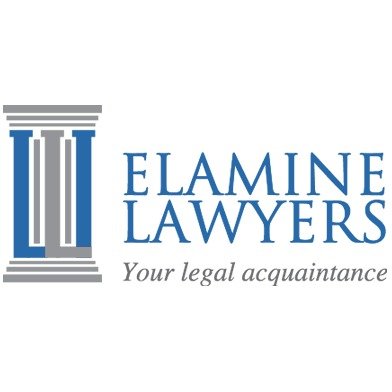Best ESG Advisory & Compliance Lawyers in Melbourne
Share your needs with us, get contacted by law firms.
Free. Takes 2 min.
List of the best lawyers in Melbourne, Australia
About ESG Advisory & Compliance Law in Melbourne, Australia
ESG stands for Environmental, Social, and Governance. In Melbourne, Australia, ESG Advisory & Compliance Law covers the legal requirements and best practice guidelines surrounding how businesses address their responsibilities in these three critical areas. Environmental factors relate to a company’s impact on the planet, such as sustainability, pollution control, and waste management. Social aspects include labor standards, workplace diversity, and community engagement. Governance involves corporate rules, transparency, anti-corruption, and effective leadership structures.
Melbourne’s ESG landscape is rapidly evolving as both local and global expectations grow. Many companies and investors are increasingly focused on ESG compliance to mitigate risk, attract investment, and build trust with consumers and stakeholders. Laws and voluntary frameworks influence how organizations manage and report ESG matters, making legal advice and guidance essential for navigating obligations and opportunities.
Why You May Need a Lawyer
There are several situations where seeking legal advice in ESG Advisory & Compliance is important in Melbourne:
- Understanding regulatory requirements specific to your industry and business size
- Navigating mandatory and voluntary ESG disclosure and reporting obligations
- Integrating ESG considerations into mergers, acquisitions, contracts, and supply chains
- Responding to government investigations, audits, or complaints related to environmental or social issues
- Drafting or reviewing ESG policies, codes of conduct, and governance structures
- Ensuring alignment with evolving international best practices and benchmarks
- Addressing potential litigation, reputational risk, or penalties for non compliance
- Advising directors and boards on ESG duties and responsibilities under the Corporations Act
- Supporting businesses in stakeholder or community engagement processes
Legal guidance ensures that your organization remains compliant, manages risk prudently, and seizes opportunities associated with sound ESG practices.
Local Laws Overview
Melbourne businesses are impacted by a range of Commonwealth and Victorian laws that intersect with ESG Advisory & Compliance. Some key legislation and frameworks include:
- Environment Protection Act 2017 (Vic): Sets out the general environmental duties, licensing, and compliance mechanisms for businesses in Victoria.
- Corporations Act 2001 (Cth): Imposes duties upon directors and officers, including obligations to consider ESG factors that may impact long-term company success.
- Modern Slavery Act 2018 (Cth) and Modern Slavery Act 2018 (Vic): Require certain businesses to identify and report on risks of modern slavery in their operations and supply chains.
- Australian Securities Exchange (ASX) Corporate Governance Principles: For listed companies, these recommend the disclosure of ESG factors and sustainability risks.
- Work Health and Safety Act 2011 (Cth) and Occupational Health and Safety Act 2004 (Vic): Address occupational health, worker safety and compliance obligations.
- Anti Discrimination Laws: Including the Equal Opportunity Act 2010 (Vic), influencing social and governance practices.
- Common Reporting Frameworks: Voluntary standards like the Global Reporting Initiative (GRI), Task Force on Climate related Financial Disclosures (TCFD), and others are commonly adopted for ESG reporting though not always legally mandatory.
The combination of binding regulations and best practice frameworks means legal advice is critical for compliance and effective ESG strategy.
Frequently Asked Questions
What is ESG compliance?
ESG compliance means meeting the legal requirements and best practice standards relating to environmental responsibility, social impacts, and corporate governance. This includes following laws, industry guidelines, and voluntary frameworks to manage risks and opportunities in these areas.
Are ESG disclosures mandatory for all businesses in Melbourne?
Not all businesses are required to make formal ESG disclosures. However, large companies, especially listed entities and those covered by the Modern Slavery Act, may have mandatory reporting obligations. There is increasing pressure for other companies to voluntarily disclose ESG practices.
What happens if my company fails to comply with ESG regulations?
Non compliance can lead to regulatory investigations, penalties, litigation, loss of contracts, reputational harm, and decreased investor confidence. Failing to identify and address ESG risks may also impact the long term viability of the business.
How do I know which ESG laws apply to my business?
The applicability of ESG laws often depends on your sector, size, public or private status, and the nature of your operations. An ESG lawyer can review your circumstances and help determine relevant obligations.
Can ESG practices improve my business’s reputation?
Yes. Implementing strong ESG policies and transparency can enhance your company’s reputation, build trust with stakeholders, attract investment, and create competitive advantages.
Is there a legal requirement to have an ESG policy?
While not all organisations are legally required to have a formal ESG policy, many regulations and corporate governance guidelines recommend or effectively require documented ESG strategies and processes, especially for larger businesses.
Do directors have ESG related duties?
Yes. Under the Corporations Act, Australian directors must act in the best interests of their company, which increasingly involves considering and managing material ESG risks and opportunities, particularly those affecting long term value.
What is a material ESG risk?
A material ESG risk is any environmental, social, or governance factor that could significantly influence a company’s performance, sustainability, or stakeholder relationships. Examples include climate change impacts, supply chain labour abuses, or governance failures.
How should a company start its ESG journey?
Begin by assessing your legal obligations, current practices, and stakeholder expectations. Engage legal counsel to develop policies, implement controls, and establish regular reporting and review mechanisms.
Can SMEs benefit from ESG compliance?
Yes. Small and medium businesses can gain market access, manage risks, attract conscious consumers and investors, and improve operational resilience by adopting ESG best practices, even if not legally required.
Additional Resources
For further information and assistance on ESG Advisory & Compliance in Melbourne, these resources may be helpful:
- Victorian Environment Protection Authority (EPA): Guidance and compliance resources for environmental issues
- Australian Securities and Investments Commission (ASIC): Regulatory information on corporate governance and disclosure
- Australian Competition and Consumer Commission (ACCC): Advice on fair trading and consumer protection
- Modern Slavery Statement Register: For guidance on modern slavery reporting obligations
- Business Victoria: Information and support for compliance and best practice in social responsibility
- Law Institute of Victoria: Find accredited ESG and corporate law practitioners
- Australian Human Rights Commission: Advice on non discrimination and workplace equity
- Industry groups and chambers of commerce: Sector specific ESG resources and events
Next Steps
If you need legal assistance in ESG Advisory & Compliance in Melbourne, consider the following steps:
- Assess your current ESG risks and compliance status within your organisation
- Document your objectives and key areas of concern for ESG strategy and compliance
- Contact a qualified solicitor or law firm with experience in ESG, corporate governance, and regulatory affairs
- Schedule an initial consultation to review your obligations, risks, and opportunities
- Work with your legal advisor to develop or update ESG policies, controls, and reporting processes tailored to your business
- Regularly review and update your compliance mechanisms to keep up with changing laws and best practices
Legal guidance in ESG is crucial for mitigating risk, seizing opportunities, and demonstrating your commitment to responsible business in Melbourne’s dynamic regulatory environment.
Lawzana helps you find the best lawyers and law firms in Melbourne through a curated and pre-screened list of qualified legal professionals. Our platform offers rankings and detailed profiles of attorneys and law firms, allowing you to compare based on practice areas, including ESG Advisory & Compliance, experience, and client feedback.
Each profile includes a description of the firm's areas of practice, client reviews, team members and partners, year of establishment, spoken languages, office locations, contact information, social media presence, and any published articles or resources. Most firms on our platform speak English and are experienced in both local and international legal matters.
Get a quote from top-rated law firms in Melbourne, Australia — quickly, securely, and without unnecessary hassle.
Disclaimer:
The information provided on this page is for general informational purposes only and does not constitute legal advice. While we strive to ensure the accuracy and relevance of the content, legal information may change over time, and interpretations of the law can vary. You should always consult with a qualified legal professional for advice specific to your situation.
We disclaim all liability for actions taken or not taken based on the content of this page. If you believe any information is incorrect or outdated, please contact us, and we will review and update it where appropriate.












